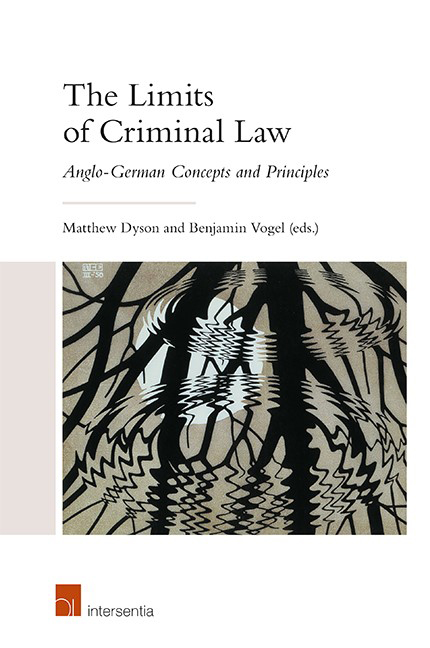Book contents
- Frontmatter
- Preface
- Contents
- List of Cases
- List of Abbreviations
- List of Contributors
- Chapter 1 Introduction
- PART I CORE PRINCIPLES OF CRIMINAL LAW
- PART II CRIME AND TORT
- PART III CRIME AND MEDICAL
- PART IV CRIME AND REGULATION
- PART V ADMINISTRATIVE SANCTIONS
- PART VI ALTERNATIVE ENFORCEMENT
- PART VII COUNTER-TERRORISM
- PART VIII CRIME AND INTELLIGENCE
- PART IX CONCLUSION
- Index
- About the Editors
Chapter 6 - Propria and Boundaries of Crime and Tort
Published online by Cambridge University Press: 11 February 2021
- Frontmatter
- Preface
- Contents
- List of Cases
- List of Abbreviations
- List of Contributors
- Chapter 1 Introduction
- PART I CORE PRINCIPLES OF CRIMINAL LAW
- PART II CRIME AND TORT
- PART III CRIME AND MEDICAL
- PART IV CRIME AND REGULATION
- PART V ADMINISTRATIVE SANCTIONS
- PART VI ALTERNATIVE ENFORCEMENT
- PART VII COUNTER-TERRORISM
- PART VIII CRIME AND INTELLIGENCE
- PART IX CONCLUSION
- Index
- About the Editors
Summary
INTRODUCTION
Lawyers have drawn on the distinction between crime and tort for a long time and in various contexts. There exist today many different criteria which supposedly circumscribe and demarcate the domains of crime and tort. English scholars, for instance, refer to several indicia such as:
1. moral or natural description of the wrong;
2. characterisation of the process of remedying the wrong as being of public concern rather than merely private;
3. the presence of measures that are typically perceived as quintessential forms of criminal sanctions (‘penalty’) or compensation;
4. a positivist approach of some kind, focusing on the process of creating the legal classifications and thus their resulting form;
5. a procedural approach, focusing on which court or what other legal actor deals with the issue.
Similar elements and characterisations can be found in the German discussion. Tort is primarily associated with the compensation of present and the prevention of future damage, whereas crime authorises state punishment the ultimate purpose of which could vary and has done so over time. German scholars emphasise that it is the stigmatising effect of public condemnation (sozialethisches Unwerturteil) inherent in criminal convictions that sets the field of crime apart from any other form of public sanction. However, since very few forms of punishment have come to be regarded as quintessentially criminal – imprisonment, most notably – it has basically fallen to the legislature to create criminal sanctions which can be imposed as part of a criminal conviction. Other definitional elements such as imposition by a criminal court or tying its legitimacy to infringements of fundamental social norms can also be found in German publications on the nature of crime. German scholars have conceived of the so-called Rechtsgutstheorie (theory of protected legal interests) in order to delimit the legitimate scope of deviations from social norms that deserve punishment. Although it has not been recognised as a constitutional concept under the German Basic Law (Grundgesetz), the theory still finds widespread support among academics. The protection of (positively recognised) legal interests also lies at the heart of the law of delict. But the idea of Rechtsgüterschutz is, at least in theory, a much richer concept claiming to guide and constrain legislative powers, whereas delictual liability builds on positive private law provisions and rights and thus does not have a similarly critical nature.
- Type
- Chapter
- Information
- The Limits of Criminal LawAnglo-German Concepts and Principles, pp. 107 - 140Publisher: IntersentiaPrint publication year: 2020



